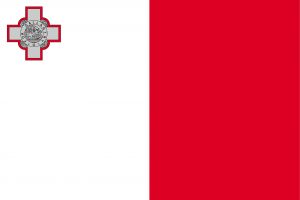Language/Maltese/Grammar/Plurals
Hi Maltese learners!😊
Learning Maltese Grammar can be a challenge, but with the right approach and dedication, you can master it in no time! In this lesson, we will focus on Maltese plurals.
Overview
Maltese plurals are formed by adding suffixes to the singular form of the word. The most common suffixes are -i and -iet. The suffix -i is used for masculine nouns, while the suffix -iet is used for feminine nouns.
Masculine Nouns
Masculine nouns are words that refer to male persons or animals, or things that are considered to be masculine. To form the plural of masculine nouns, the suffix -i is added to the singular form of the word. For example:
- Singular: il-ħabib (the beloved)
- Plural: il-ħabibiet (the beloved ones)
Feminine Nouns
Feminine nouns are words that refer to female persons or animals, or things that are considered to be feminine. To form the plural of feminine nouns, the suffix -iet is added to the singular form of the word. For example:
- Singular: il-ħabiba (the beloved one)
- Plural: il-ħabibiet (the beloved ones)
Irregular Plurals
Some nouns have irregular plurals. These nouns do not follow the regular pattern of adding the suffix -i or -iet. Here are some examples of irregular plurals:
- Singular: il-ħadd (the wall)
+ Plural: il-ħadud (the walls)
- Singular: il-ġebel (the mountain)
+ Plural: il-ġebla (the mountains)
Exceptions
There are some exceptions to the rules for forming plurals. For example, some nouns ending in -a change to -i in the plural form. Here are some examples:
- Singular: il-karta (the card)
+ Plural: il-karti (the cards)
- Singular: il-kamra (the room)
+ Plural: il-kamri (the rooms)
Conclusion
In conclusion, forming plurals in Maltese is relatively straightforward. Most nouns follow the regular pattern of adding the suffix -i or -iet. However, there are some exceptions and irregular plurals that you should be aware of. To improve your Maltese Grammar, you can also use the Polyglot Club website. Find native speakers and ask them any questions!
If you have any questions, please ask them in the comments section below.
Feel free to edit this wiki page if you think it can be improved. 😎
Related Lessons
- Conditional Mood
- Present Tense
- Questions
- Indefinite Articles in Maltese
- Possessive Case in Maltese
- Future Tense
- Adjectives
- Negation
- Past Participle in Maltese
- How to Use Have

